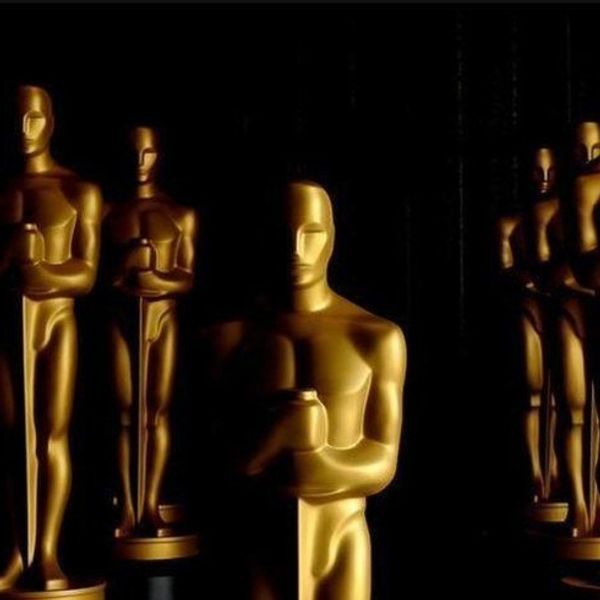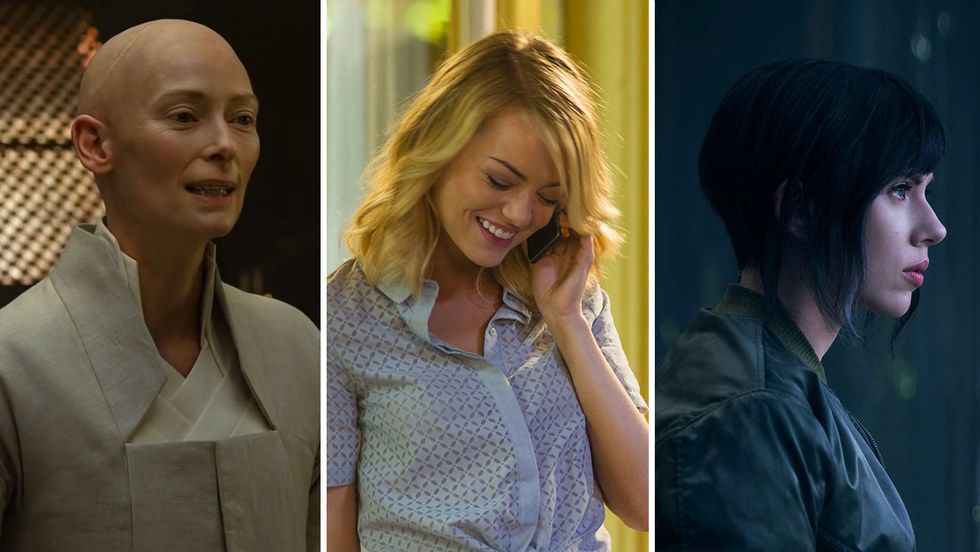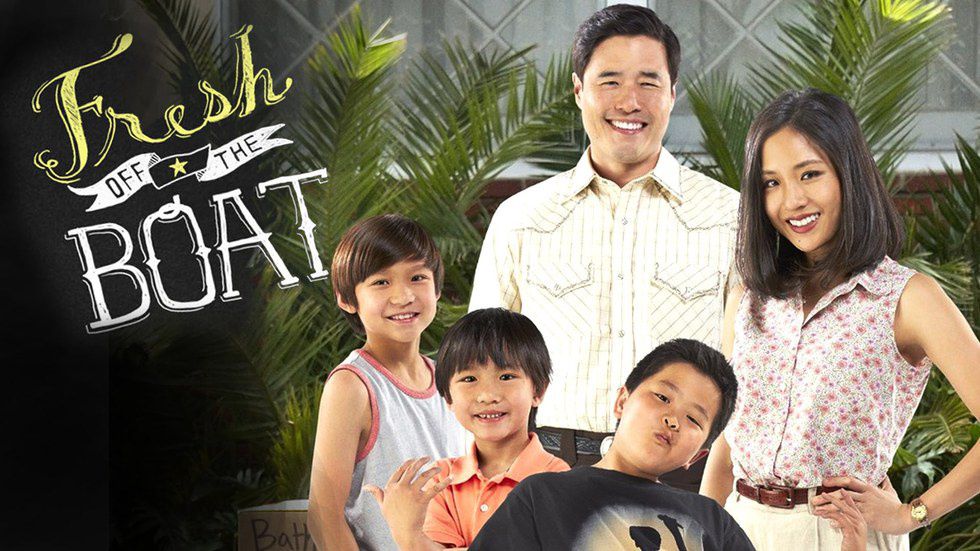To Hollywood, and to all my fellow Asian-Americans:
We live in a country where every time we turn on the television, we hardly see anyone who looks like us.
It’s a truth that all Asian-Americans know all too well in their lives: We go see box office hits about brave superheroes saving the world, watch TV shows about glamorous politicians and police detectives, read books about characters in poignant and beautiful romances. But none of them are about us. None of them tell our narratives—our stories.
And in those rare moments we do see people who look like us on the big screen? They’re either the geeky math nerd or the perpetual foreigner, the exotic prostitute or the model minority. Frankly, the list of racist stereotypes goes on and on.
It’s a particularly disturbing phenomenon when you consider the statistics: Asian-Americans are the fastest growing racial group in the country—yet, according to the USC Annenberg School for Communication and Journalism, they only represent about 5% of speaking roles and about 1.3% of lead roles in today’s films. And at least half or more of all cinematic, television, or streaming stories fail to portray one speaking or named Asian or Asian-American on screen. In a world where American entertainment media plays a pivotal role in defining the perceptions of every aspect of daily life, the unfortunate truth is this: on screen, Asian-Americans are mostly invisible.
But we won’t stand for it.
Instead, we ask you: why is the erasure of the Asians—and other minorities—still an acceptable practice in Hollywood? It’s bad enough that there already aren’t a lot of opportunities for Asian actors to appear on the big screen—so why do today’s top films still underrepresent the Asian-American population, feature racist stereotypes of the Asian culture, and even engage in the practice of “whitewashing” traditionally Asian narratives and roles?
Indeed, there’s a problem that so clearly needs to be addressed when, even in stories that traditionally feature Asian characters and Asian narratives, we are still rendered invisible. Take last year’s film “Aloha” for example, where Emma Stone took on the lead role of a half-Asian woman named Allison Ng—yes, blonde-haired, blue-eyed, white Emma Stone, as a woman of Chinese and Hawaiian descent. And just last April, Disney and Marvel Studios released a trailer for the adaptation of the Marvel comic “Doctor Strange” that presented Tilda Swinton as the Ancient One—a character that had originated in the comics as a Tibetan monk. And in the live-action American film adaptation of the Japanese manga series “Ghost in the Shell,” scheduled to be released in 2017, main character Motoko Kuanagi will be played by Scarlett Johansson—in a black bob.
And the list goes on. Too often, our rich and diverse narratives, essentially rooted in our Asian culture and heritage, are “whitewashed” into roles portrayed by white actors in plot-lines grounded in white culture—stories being told that are, for the most part, stories about white people—which is, after all, nothing new in Hollywood. (Recall Mickey Rooney's "yellowface" caricature-like portrayal of Mr. Yunioshi in "Breakfast at Tiffany's" in 1961, or John Wayne's role as Genghis Khan, founder of the Mongol Empire, in "The Conqueror" in 1956.) It’s almost as if our stories are just not seen as relatable or applicable to a predominantly white demographic—as if being minorities or people of color make our experiences not accessible or universal, but instead “ethnic” and “exotic” and “foreign.”
Well, to those filmmakers and producers in Hollywood we say this: Our stories are just as beautiful, just as universal—and just as important. When you engage in the practice of whitewashing, you allow the assumption that people have an inability to relate to and empathize with Asian characters, and thus perpetuate a mindset that ultimately diminishes our humanity and obliterates our essential identities in our own narratives. And we won't stand for it. As a rich, diverse, and complex group of people, we deserve just that—rich, diverse, and complex depictions of our stories and experiences.
So we ask you to join us in our movement: to stop the deleterious practices of whitewashing and erasure of Asians in film and to instead fight for our visibility on the big screen. To make beautiful films not just with Asian people as unimportant, minor characters in the background—as the heavily-accented, no-English foreigner, or the book-smart, straight-A’s math geek—but about Asians who are successfully acculturated as an integral part of the American culture, or about Asians who are street-smart and outspoken and badass people. We ask you to make films about Asians who are passionate and daring and confident, Asians who are flawed and human, Asians who are hot and desirable in positive romantic leads, Asians who are unique and interesting and shatter the cliched stereotypes that the world often molds them into—Asians who are essentially the lead roles in their own individual, extraordinary lives.
It's time for the film industry to catch up to the progress that television programs have recently made: to offer fresh, genuine portrayals of Asian-American families like ABC’s “Fresh Off The Boat,” or to present Asian men in positive romantic leads like in The CW’s “Crazy Ex-Girlfriend,” or to depict Asian women in ultra-competent and ultra-stylish lead roles in glamorous occupations like Lucy Liu in CBS’s “Elementary.” We’ve waited long enough to even see ourselves on the small screen—isn’t it time for those gains made in television to move to the big screen, too?
And to all my Asian-American brothers and sisters, I remind you: change starts with you. Especially to those who are the artists, the writers, the actors, the creatives—we need you now, more than ever. We need your novels on bookshelves, your screenplays in Hollywood, your names in big lights on movie screens and theater stages. Step up and make your art,even if your parents tell you that it’s not a practical career choice or if the rest of the world laughs and says that Asian entertainers have no future in the States; share your art, tell your stories—let your damn light shine.
And to those who are not artists: exercise your power as a consumer. As the fastest-growing ethnic group in the country, our households outspend the average American family by 19% annually, and are 29% more likely than the average American to spend money on name brands. We have more consumer power than we realize—and we don’t have to continue settling for films and sitcoms with people who look nothing like us, people whose experiences and voices are nothing like our own. Don’t just politely ask and wait—demand a seat at the table, call out studios and networks for their whitewashing and racist stereotypes and reward and offer support to the progressive ones.
After all, it’s time for Hollywood’s monotone vision of the world to get a taste of our colorful, diverse stories—stories that are our own, and, after all these years, deserve to be told in our own unique voices.
























